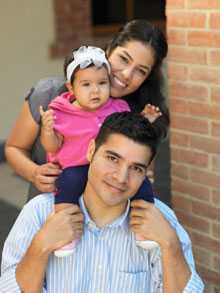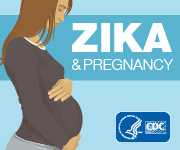Birth Defects Tracking in Puerto Rico
Puerto Rico Birth Defects Surveillance and Prevention System

1 in 33 babies born in Puerto Rico has a major birth defect.
The Puerto Rico Birth Defects Surveillance and Prevention System (BDSPS) is essential for understanding the impact of birth defects in the territory. The BDSPS identifies babies born with birth defects in Puerto Rico, connects families of babies with birth defects to local services, and promotes birth defects prevention.
Common. Costly. Critical.
- Among the almost 30,000 babies born in Puerto Rico each year, about 1 in every 33 is diagnosed with a birth defect.
- Birth defects are costly – hospital costs for the treatment of birth defects are more than $2.5 billion each year in the United States
- Babies born with a birth defect are more likely to die before their first birthday, compared to babies born without a birth defect.

About the Program
The BDSPS actively looks for birth defects among all babies who are born and live in Puerto Rico, which is important to get for a complete picture of what is happening within the territory. One of 14 birth defects tracking programs that receive a grant funded by CDC’s National Center on Birth Defects and Developmental Disabilities, the BDSPS monitors about 30,000 babies born in Puerto Rico each year.
The BDSPS partners with many groups in Puerto Rico to track babies born with birth defects and refer these babies to appropriate health services. Such partners include various healthcare providers, the newborn hearing screening program, and the Children with Special Health Care Needs Pediatric Centers. The program also collaborates with local partners, including community health fairs and local schools, to promote prevention messages.
The BDSPS works to:
- Track 51 birth defects in Puerto Rico and use the data to monitor trends over time and patterns of birth defects
- Identify populations at greater risk of having babies with birth defects or other health problems and provide health education to these groups
- Promote prevention messages to reduce the number of birth defects in Puerto Rico
- Refer babies with birth defects and their families to health services and family support groups in Puerto Rico
Program in Action
- Educates healthcare professionals: The BDSPS has created educational modules for health professionals to increase knowledge and awareness of birth defects among this audience.
- Disseminates data: The system produces and disseminates an annual report describing birth defects in Puerto Rico. Partners have described this annual report to be useful and to contain excellent content.
- Prevents birth defect recurrence: The BDSPS uses its data to identify at-risk populations in Puerto Rico, mainly women who have had a pregnancy affected by a major birth defect of the brain and spine (known as neural tube defects). The BDSPS contacts these women to counsel them on ways to prevent birth defects in a future pregnancy.
- Educates women and families: The BDSPS staff participates in many community health fairs or educational activities to increase awareness of birth defects and prevention messages. These efforts are estimated to have reached almost 15,000 people in the past year.
- Promotes preconception health: The BDSPS promotes adopting healthy behaviors before becoming pregnant. The program has published a number of newspaper articles and newsletters on birth defects prevention strategies. For example, the BDSPS uses these channels to encourage women to get folic acid daily. Folic acid is a B vitamin that can help prevent major birth defects of the brain and spine.
- Refers to services: The BDSPS links children and families with birth defects to local services. A social worker with BDSPS contacts families to provide resources, support, and referral services.
Making a Difference
“I worked for seven years as an abstractor for the BDSPS in Puerto Rico. As a nurse, I recognized immediately the importance of the program and the positive results achieved when children are referred early for services. My work made me aware of the importance of counseling for parents and families of children born with birth defects. It is such an important program for the identification of health needs for the children with birth defects!”
– Daisy Ortiz
More Information
For more information on the Puerto Rico Birth Defects Surveillance System, please visit their website.
- Page last reviewed: June 12, 2017
- Page last updated: June 26, 2017
- Content source:



 ShareCompartir
ShareCompartir